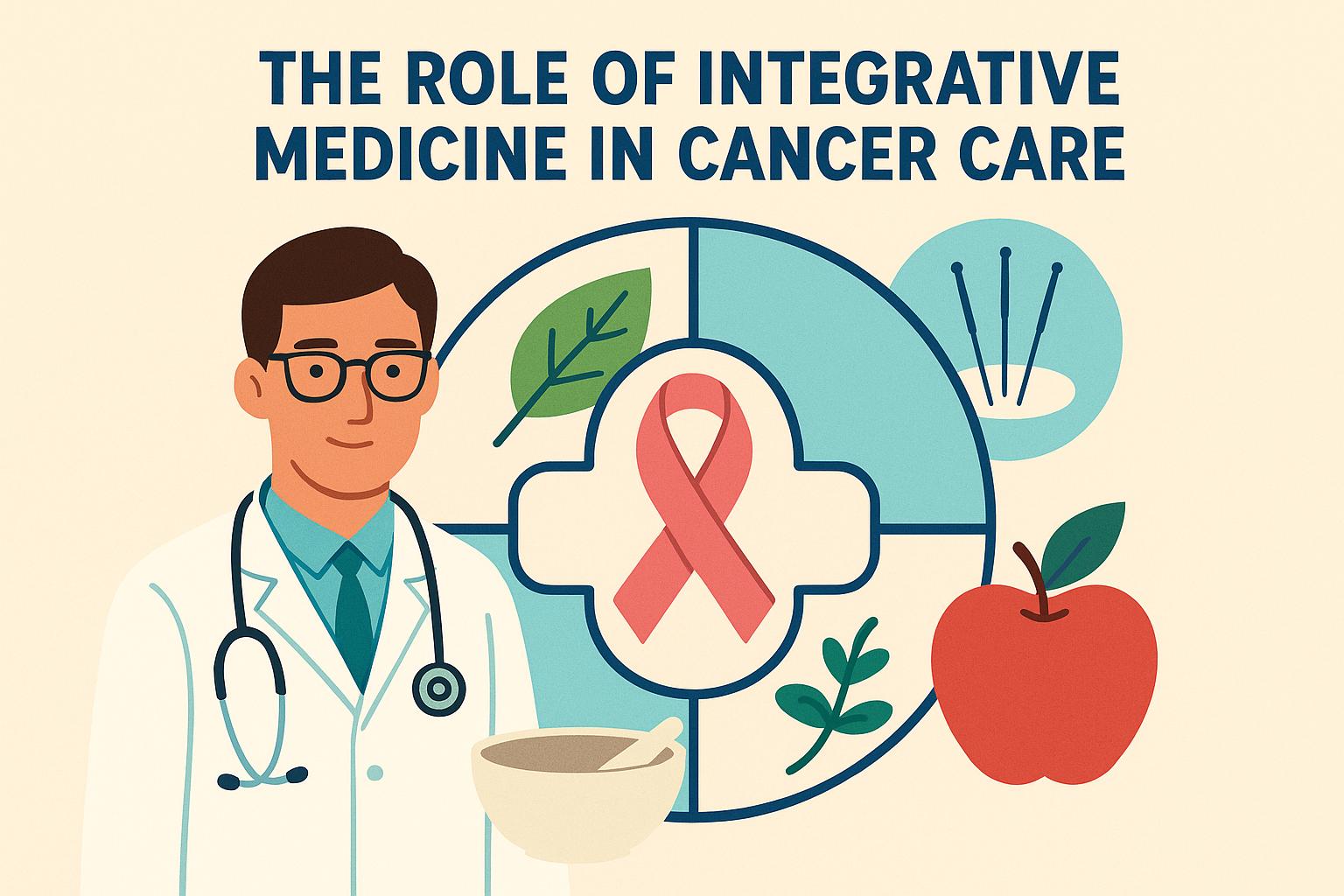The Evolution of Integrative Medicine in Cancer Care
Integrative medicine is becoming increasingly prominent in the field of cancer care, offering new dimensions to treatment and recovery. This approach integrates conventional cancer treatments—such as surgery, chemotherapy, and radiation therapy—with complementary therapies, providing a comprehensive, patient-centered treatment model. By addressing not only the disease but also the patient’s physical, emotional, and spiritual well-being, integrative medicine is increasingly accepted in mainstream oncology. Its growth is fueled by a growing body of evidence highlighting its potential to enhance the quality of life for cancer patients.
Conventional vs. Complementary Approaches
Traditional cancer treatments, while effective at targeting and eliminating cancer cells, often produce side effects that can be distressing and debilitating. These can range from physical symptoms like fatigue, nausea, and pain to emotional challenges such as anxiety and depression. Complementary therapies, which include practices like acupuncture, yoga, meditation, and nutritional counseling, are designed to support the patient’s holistic recovery. They focus on managing symptoms, improving the patient’s overall quality of life, and addressing aspects often overlooked by conventional medicine.
Conventional cancer therapies generally offer a one-size-fits-all approach, targeting the disease more so than the individual. Complementary therapies, however, are personalized, focusing on the unique experiences and needs of each patient. They aim to nurture resilience, enhance recovery, and foster a sense of empowerment and control over one’s health.
Benefits of Integrative Medicine
Integrative medicine brings numerous benefits to cancer care. These benefits revolve around the approach’s ability to reduce adverse side effects, improve emotional well-being, and enhance immune function, among other positive impacts.
Reduced Side Effects: Integrative therapies such as acupuncture are particularly effective at alleviating pain and reducing nausea, common side effects of chemotherapy and radiation. This not only helps improve the patient’s physical comfort but also their ability to continue with necessary treatments.
Improved Emotional Well-being: Practices that promote the mind-body connection, including meditation and yoga, significantly contribute to reducing stress and anxiety in cancer patients. Such practices enhance emotional resilience and help patients maintain a positive outlook, thereby facilitating better recovery and improving overall well-being.
Enhanced Immune Function: Nutritional support plays a critical role in improving immune function. A well-designed nutritional plan can help bolster the body’s natural defense mechanisms, thereby aiding in the fight against cancer and supporting recovery during and after treatment.
Holistic Patient Care
A critical aspect of integrative medicine is its holistic approach to treating the individual rather than just the disease. This approach entails a collaborative partnership between various healthcare professionals, including medical doctors, nutritionists, psychologists, and practitioners of complementary therapies. They work together to develop comprehensive, personalized treatment plans tailored to the unique circumstances and preferences of each patient.
Such personalized care promotes an understanding of the interconnectedness of body, mind, and spirit in health and healing. It allows for a more dynamic treatment approach, where therapies are adapted in response to changes in the patient’s condition or preferences, ensuring that care is always aligned with patient goals and needs.
In essence, integrative medicine empowers patients to become active participants in their health journey, enhancing their understanding of their condition and the impact of various treatment options. It emphasizes patient education, self-care, and preventive medicine, which collectively contribute to a more patient-centered and compassionate approach to cancer care.
The Future of Cancer Care
The role of integrative medicine in cancer care is poised for growth as research and clinical trials continue to demonstrate its efficacy. Although currently serving as a complement to traditional cancer treatments, integrative medicine has the potential to transform into a standard component of cancer care practices. The recognition of its benefits is prompting more healthcare institutions to incorporate these therapies into their treatment programs.
As the field of integrative medicine evolves, it is essential to maintain a robust evidence base to further substantiate its efficacy. This involves continued research, clinical trials, and data collection to better understand the complex interactions between traditional and integrative treatments. It is also crucial that healthcare providers are trained in both aspects of care to ensure a seamless integration of therapies.
Ultimately, integrative medicine in cancer care aims to not only treat cancer but empower patients with the knowledge and tools needed to improve their quality of life during treatment and beyond. By focusing on comprehensive patient care that encompasses physical, emotional, and spiritual dimensions, this approach holds promise for the future of oncology.
As always, it is imperative for patients to consult their healthcare providers before beginning any new treatment modalities. This ensures that these therapies are safe, effective, and appropriate, given their individual treatment plans and medical history. The continuous dialogue between patients and healthcare providers is vital for optimizing treatment effectiveness and patient well-being.
This article was last updated on: October 17, 2025

